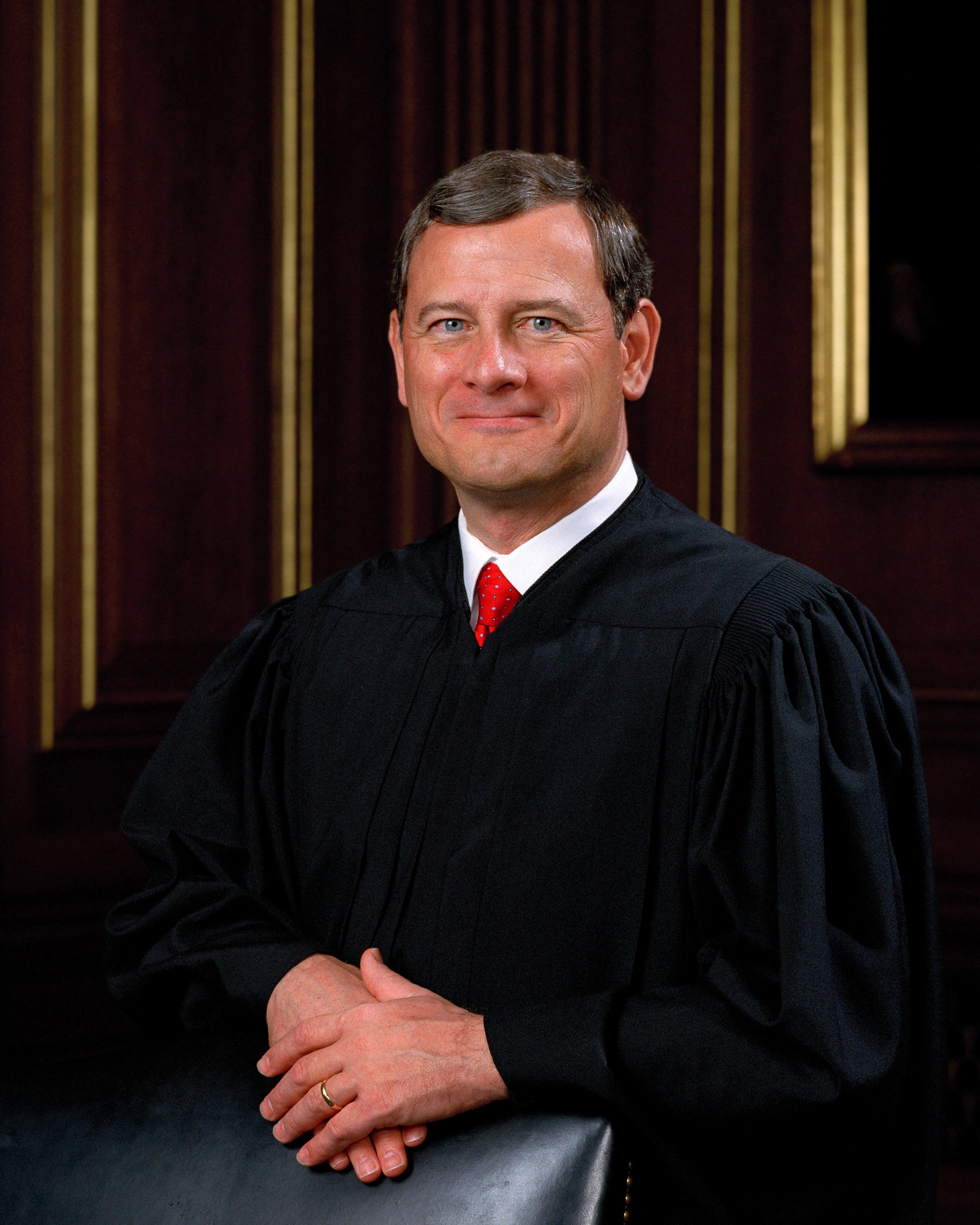John Roberts
 John Glover Roberts Jr. (born January 27, 1955) is an American jurist serving since 2005 as the 17th chief justice of the United States. He has been described as having a moderate conservative judicial philosophy, though he is primarily an institutionalist. Regarded as a swing vote in some cases, Roberts has presided over an ideological shift toward conservative jurisprudence on the high court, in which he has authored key opinions.
Born in Buffalo, New York, Roberts was raised Catholic in Northwest Indiana and studied at Harvard University with the initial intent to become a historian, graduating in three years with highest distinction, then attended Harvard Law School, where he was an editor of the ''Harvard Law Review.'' Before holding positions in the Reagan and senior Bush administration, Roberts served as a law clerk for Judge Henry Friendly and Justice William Rehnquist. From 1989 to 1993, he was Principal Deputy Solicitor General, after which he built a leading appellate practice and argued 39 cases before the Supreme Court.
John Glover Roberts Jr. (born January 27, 1955) is an American jurist serving since 2005 as the 17th chief justice of the United States. He has been described as having a moderate conservative judicial philosophy, though he is primarily an institutionalist. Regarded as a swing vote in some cases, Roberts has presided over an ideological shift toward conservative jurisprudence on the high court, in which he has authored key opinions.
Born in Buffalo, New York, Roberts was raised Catholic in Northwest Indiana and studied at Harvard University with the initial intent to become a historian, graduating in three years with highest distinction, then attended Harvard Law School, where he was an editor of the ''Harvard Law Review.'' Before holding positions in the Reagan and senior Bush administration, Roberts served as a law clerk for Judge Henry Friendly and Justice William Rehnquist. From 1989 to 1993, he was Principal Deputy Solicitor General, after which he built a leading appellate practice and argued 39 cases before the Supreme Court.In 1992, President George H. W. Bush nominated Roberts to the U.S. Court of Appeals for the District of Columbia Circuit, but the Senate did not hold a vote on his confirmation. In 2003, President George W. Bush appointed Roberts to the D.C. Circuit. In 2005, Bush nominated Roberts to the Supreme Court, initially as an associate justice to fill the vacancy left by Justice Sandra Day O'Connor, but promoted him to chief justice after Rehnquist's death. Roberts was confirmed by a Senate vote of 78–22, becoming the youngest to serve in the position since John Marshall.
As chief justice, Roberts has authored majority opinions in many landmark cases, including ''National Federation of Independent Business v. Sebelius'' (upholding most sections of the Affordable Care Act), ''Shelby County v. Holder'' (limiting the Voting Rights Act of 1965), ''Trump v. Hawaii'' (expanding presidential powers over immigration), ''Carpenter v. United States'' (expanding digital privacy), ''Students for Fair Admissions v. Harvard'' (overruling race-based admission programs), and ''Trump v. United States'' (outlining the extent of presidential immunity from criminal prosecution). Roberts also presided over the first impeachment trial of President Donald Trump. Provided by Wikipedia
-
1book bibliotecaUNESCO
-
2
-
3
-
4
-
5
-
6
-
7
-
8
-
9book bibliotecaUNESCO
-
10
-
11
-
12
-
13Digital revistaUNMSM
-
14Texto bibliotecaUNCO AR
-
15Brief bibliotecaBanco Mundial
-
16Working Paper bibliotecaBanco Mundial
-
17programme and meeting document bibliotecaUNESCO
-
18programme and meeting document bibliotecaUNESCO
-
19by Larson, Donald F., Lampietti, Julian, Gouel, Christophe, Cafiero, Carlo, Roberts, John
Published 2014-01-23Journal Article bibliotecaBanco Mundial -
20by Larson, Donald F., Lampietti, Julian, Gouel, Christophe, Cafiero, Carlo, Roberts, John
Published 2012-04Policy Research Working Paper bibliotecaBanco Mundial




